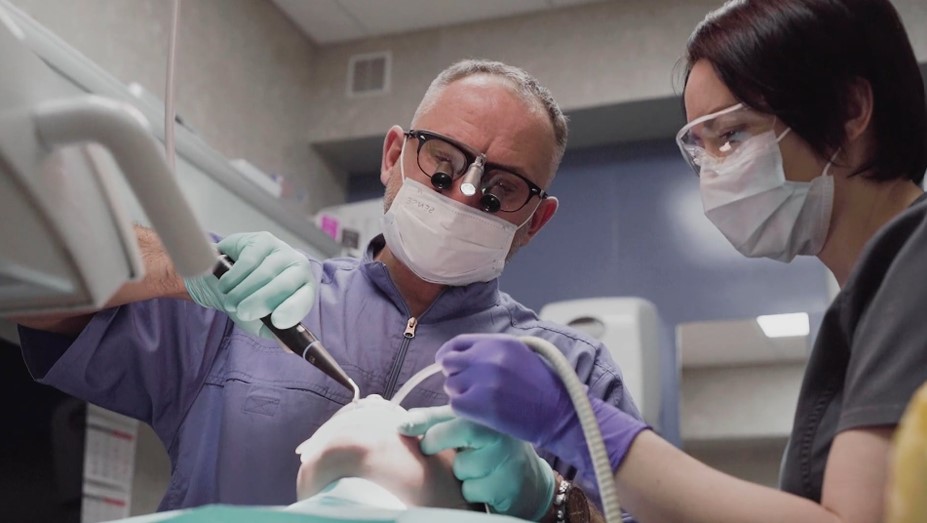
The American Association of Endodontists tracks medical cases in the U.S. According to their reports, over a million root canals are performed by dentists every year. Based on these statistics, there is no reason to fear a root canal. If you still have doubts, continue reading and learn all about the procedure.
What Is a Root Canal?
A root canal destroys bacteria in your mouth. It’s also an effective way to rescue a tooth that could possibly rot or is infected.
During the root canal procedure, a dentist will carefully remove all infected or inflamed pulp. Next, the tooth in question will be cleaned and disinfected on the inside. Then, it will be filled and sealed.
The Purpose of a Root Canal
There is a hard layer beneath the enamel inside of every tooth. The top layer is called dentin, and the soft tissue under it is called pulp. The tissue that makes up the pulp has nerves and blood vessels. When a tooth is in the development phase, the pulp and the connective tissue help the root grow.
The purpose of a root canal is to remove the pulp. A tooth that’s fully developed doesn’t need the pulp to survive. It will get proper nourishment from the pulp that surrounds it.
The Reasons for a Root Canal
A root canal treats problems that aggravate the pulp inside of a tooth. For example, it can eliminate intense pain from a deep cavity. Other reasons for a root canal treatment include
- Pimples that sprout on the gums
- Painful chewing
- Dark gums
- Tooth decay
- Swollen gums
- A cracked or chipped tooth
Do Root Canals Hurt?
Anesthesia is used during a root canal treatment. It will block most of the pain. There will be some discomfort while the procedure is underway, but it will be bearable. After the procedure is over, your mouth will feel sore for several days.
Following a root canal, it’s possible to resume normal activities like work. However, you will have to change your eating habits while your mouth is numb.
You might experience mild pain after the procedure is done. For quick relief, you could take acetaminophen like Tylenol or ibuprofen like Advil. However, consult your doctor first because these over-the-counter medications could counteract with other prescriptions you’re taking.
The Road to Recovery
You’ll need to practice good dental hygiene while you’re recovering from a root canal. Also, keep in mind that most times a tooth that gets a root canal will then need to have a dental crown placed. This happens because root canals can become very brittle and break or crack without proper crown treatment to protect and strengthen integrity of the tooth.
Talk with the Cleveland Smile Center team about the process for a Root Canal and our Free Consultation.


